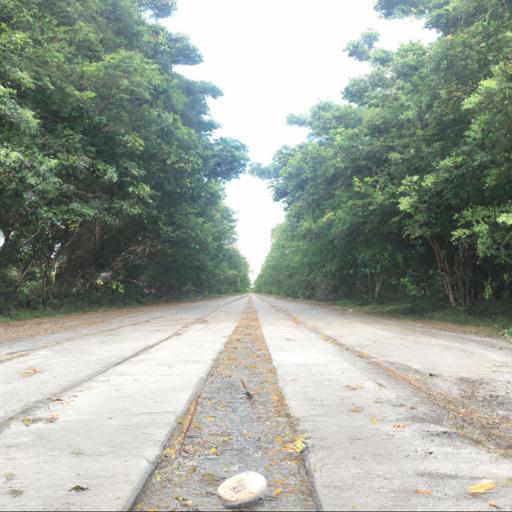Are you wondering whether to use “will” or “would” in an if-clause? It can be difficult to decide which one to use in certain contexts.
In this blog, we’ll look at the differences between “will” and “would” in if-clauses, how to decide which one to use, and provide some examples of usage. We’ll also discuss the distinction between “will” and “would” in other contexts. By the end of this blog, you’ll have a better understanding of when to use “will” or “would” in if-clauses.
Contents
When to use will in an if-clause

When it comes to making decisions, you must be aware of the different grammatical structures used to express hypothetical scenarios. In that regard, this article will discuss when to use ‘will’ in an if-clause. The use of ‘will’ in an if-clause simply implies that a specific action is only going to take place, provided the stated condition is met.
To be precise, if the condition stated in the if-clause is not met, then no action is going to occur. For instance, let’s assume there’s a meeting between two business partners, and one of the partners tells the other: “If you invest the required capital, I will agree to all the terms of the contract.
” In this sentence, if the partner doesn’t invest the capital, then the other partner won’t agree to the contract terms. The use of ‘would’ in an if-clause, on the other hand, implies a lesser degree of certainty as compared to will.
For example, “If you could invest the required capital, I would agree to all the terms of the contract. ” This implies that if the partner were to invest the capital, the other partner would, under no duress, agree to the contract terms. In conclusion, using ‘will’ in an if-clause implies that an action or decision is subject to the realization of a specific condition.
Conversely, the use of ‘would’ implies that a situation is subject to change and/or a certain amount of uncertainty. This article has served to inform and guide readers in their decision making processes when it comes to using the appropriate grammar in hypothetical scenarios.
When to use would in an if-clause

The title “When to use will or would in an if-clause” is not an easy one to answer. Understanding when to use which of the two modal verbs in conjunctions with an if-clause is a question that many English learners struggle with.
The difference between them is best understood when one considers the distinction between the two main areas in which to use them: shall and will, associated with making promises and requests; and would, a more remote expression associated with references to the past, both real and hypothetical. The key difference between using will or would in an if-clause lies in the temporal state of their respective references. Will is used to refer to a statement or prediction in the present or future, while would tends to refer to the past, either real or imaginary.
In very simple terms, will expresses the idea of ‘modality’ – a contemplation of the present moment which may or may not occur in the future. Would, on the other hand, expresses the ‘pastness’ – situations or events which have already happened, or which might have happened in the past.
To illustrate this point, one could consider the following example: ‘if I (will) do this, then what will you do?’ Here, the implication is that the action referred to by ‘I’ is still to occur, and will is used to express modality. Alternatively, one might consider the statement ‘if I (would) have done this, then what would you have done?
’ Here, the action referred to by ‘I’ has not occurred and so would is used to express the situation as if it had happened in the past. In conclusion, when it comes to using will or would in an if-clause, the fundamental difference lies in the temporal reference behind their respective expressions.
Will is used for situations and events in the present to future, whereas would is used for situations and events that occurred, or might have happened, in the past. By understanding this difference, English learners can more easily identify when to use each of the two modal verbs in an if-clause.
Examples of will and would in if-clauses
When it comes to expressing hypothetical or imaginary situations in English, the difference between ‘will’ and ‘would’ can seem confusing to English learners. Discarding unnecessary expressions, the keyword ‘should I use will or would in an if-clause’ can be discussed in the context of the section title ‘Examples of will and would in if-clauses’.
Typically ‘will’ is used in if-clauses when expressing real or likely possible outcomes and ‘would’ suggests more imaginary or unlikely scenarios. ‘Will’ denotes a strong intention, for example ‘If I have the money, I will buy a new house this year’ conveys a definite decision, whereas ‘would’ is used when the idea is more hypothetical, for example ‘If I had the money I would buy a new house this year’ conveys an idea of desire or hope. Furthermore, it is possible to also use ‘will’ and ‘would’ in the same if-clause.
In this case, ‘will’ offers certainty about one part of the sentence but ‘would’ suggests a hypothetical outcome for the other part, for example ‘If I have the money I will buy a new house, but if I don’t I would rent one instead’. To summarise, when considering ‘should I use will or would in an if-clause’ it is important to consider the tense, certainty and intention expressed in the sentence.
In general, ‘will’ should be used in if-clauses to express real or likely possible outcomes and ‘would’ suggests more imaginary or unlikely scenarios. When both tenses are used in the same if-clause, ‘will’ offers certainty about one part of the sentence but ‘would’ suggests a hypothetical outcome for the other part.
Common mistakes to avoid when using will and would in if-clauses
When it comes to using will and would in if-clauses, many English learners can end up feeling confused. Although the two modal verbs are similar in many ways, they’re typically used in different ways within if-clauses. To improve your abilities and avoid common mistakes, it’s wise to fully understand the difference between the two.
In the most basic terms, will is typically used to talk about future events that are likely to occur, while would is used to talk about events that may happen in the future – although the chances are not as likely as with will. For example, if we look at the sentences ‘If I have time tomorrow, I will watch a movie’ and ‘If I have time tomorrow, I would watch a movie’, the first sentence is more likely to be accurate – as it indicates that we are more likely to watch a movie the following day.
Typically, if the if-clause includes a hypothetical situation, would is more appropriate. If a person wants to discuss a situation that has yet to occur, they would use will.
For instance, ‘If you call me, I will answer’ and ‘If you called me, I would answer’ are both grammatically and stylistically correct. However, the first sentence would be more suitable if we are discussing something that is likely to happen in the future, while the second sentence would be more fitting if we are discussing a hypothetical scenario. Overall, it’s important to remember that will and would are typically used in different ways within if-clauses.
Will is most commonly used when discussing events that will likely occur, while would is used when talking about events that may happen but the chances are not as great. Understanding the differences between the two will help to ensure that you use them correctly.
Our video recommendation
Bottom Line
When deciding whether to use “will” or “would” in an if-clause, it is important to consider the context of the sentence. Generally, “will” is used in an if-clause to express a future possibility, while “would” is used to express a hypothetical or unlikely situation. It is important to choose the correct word to ensure the sentence conveys the intended meaning.
FAQ
What is the difference between will and would in an if-clause?
The difference between will and would in an if-clause is that will is used to express a future action that is likely to happen, while would is used to express a hypothetical situation that is unlikely to happen.
When should I use will in an if-clause?
You should use “will” in an if-clause when you are referring to a future event or condition that is likely to happen.
When should I use would in an if-clause?
You should use “would” in an if-clause when you are referring to a hypothetical situation or a future possibility.
How do I know when to use will or would in an if-clause?
If the if-clause is referring to a future event, then use “will”. If the if-clause is referring to a hypothetical situation or a past event, then use “would”.
What are the rules for using will or would in an if-clause?
The use of “will” or “would” in an if-clause depends on the context. Generally, “will” is used to express a future action that is likely to happen, while “would” is used to express a hypothetical situation.
Are there any exceptions to using will or would in an if-clause?
Yes, there are exceptions to using will or would in an if-clause. For example, when the if-clause is in the past tense, the verb in the main clause should be in the past tense as well, rather than using will or would.

